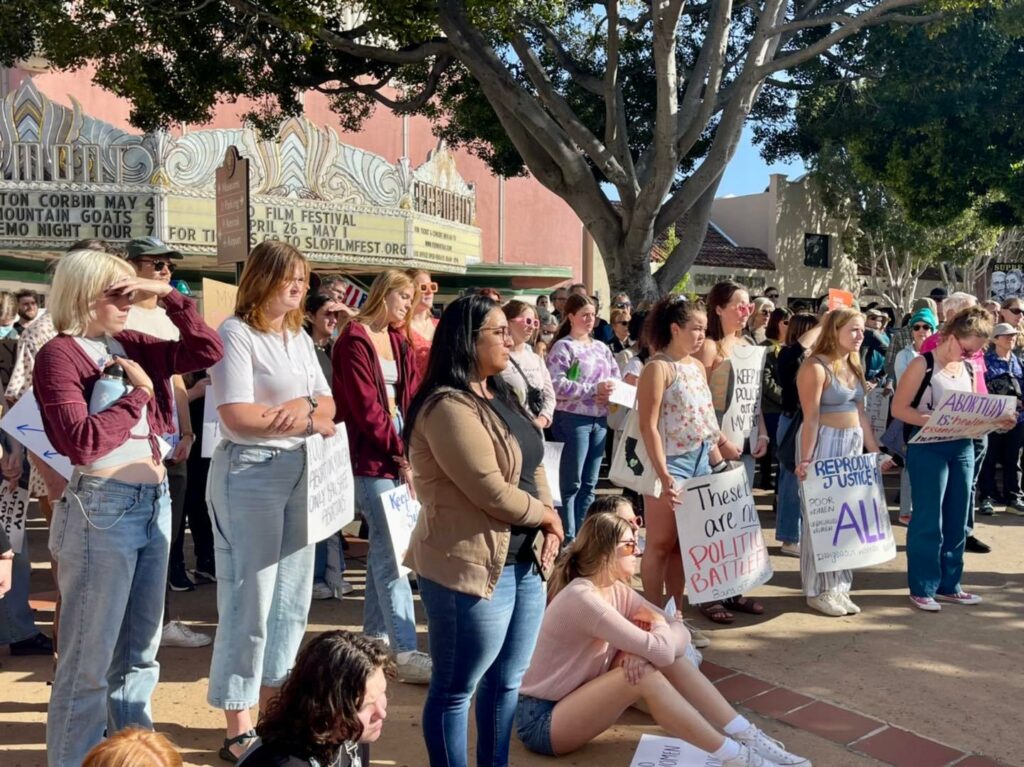California voters will decide on seven initiatives in November
July 6, 2022

Abortion rights protesters in San Luis Obispo
By KAREN VELE
From abortion rights to online sports gambling, Californians will be asked to decide on seven controversial subjects in November.
Proposition 1: Following the leaked Supreme Court draft opinion indicating the nation’s high court would overturn Roe v. Wade, legislators proposed a constitutional amendment. Proposition 1 seeks to amend the state constitution to guarantee the right to choose abortion and contraception.
Proposition 26: In an attempt to expand their gambling enterprises, some Native American tribes want the voters to allow sports wagering, roulette and dice games on tribal lands. The initiative proposes a 10% tax on horse race and sports betting that is expected to raise money for the state budget.
Proposition 27: Funded by online betting companies FanDuel and DraftKings, this initiative will allow online and mobile sports betting through certified gaming tribes and large online betting companies. The measure would result in increased revenues to the state from online sports wagering-related taxes, licensing fees, and penalties. The tribes supporting Proposition 26 are opposed to Proposition 27, in what is expected to be a well-funded battle.
Proposition 28: Promoted by school administrators, this initiative requires the state to set aside additional funding for arts and music education in all K-12 public schools. Expected to raise between $800 million and $1 billion per year, the monies will be unevenly distributed with lower income areas receiving higher funding.
Proposition 29: For the third time, voters will be asked to approve additional restrictions for dialysis providers. Similar attempts failed in both 2018 and 2020. This third-time’s-a-charm version requires a physician, nurse practitioner, or physician assistant to be onsite during all treatment hours.
Proposition 30: This initiative seeks a tax on wealthy Californians to supplement electric vehicle purchases, in order to reduce greenhouse gasses. The plan is to increase personal income tax on individuals who make over $2 million a year by 1.75%. Funds raised will primarily be spent on promoting electric vehicle purchases through financial incentives and constructing charging stations.
Proposition 31: The tobacco industry is seeking to overturn a 2020 law that bans the sale of flavored tobacco products.






The comments below represent the opinion of the writer and do not represent the views or policies of CalCoastNews.com. Please address the Policies, events and arguments, not the person. Constructive debate is good; mockery, taunting, and name calling is not. Comment Guidelines